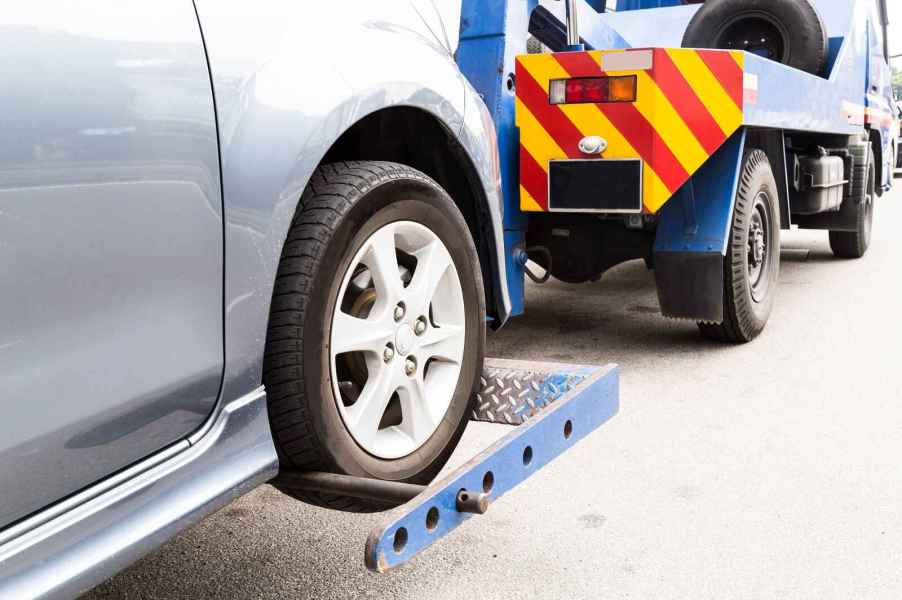
2.6M Unprotected Vehicle Towing Records Breached, Exposes Costly Fees Drivers Face or Give Up Their Car
A few days ago, cybersecurity researcher Jeremiah Fowler released an eye-opening report. It contained information about a huge batch of unsecured towing records. The records were housed by Traxero, a tech company that provides services to towing companies around the country.
Invoices, sales notices, and other documents were among the 2.6 million exposed records from towing companies in 25 states. Many contained consumers’ personal information. While the security gap had left personal info unsheltered, the documents also shed light on storage and other fee practices within the towing industry.
Towing documents increased scamming risk and displayed shockingly high fees
Fowler points out that scammers could indeed use personal information to contact consumers and somehow bamboozle them. The example Fowler provided was a scammer taking the phone number, VIN, and balance due from a document and pretending to be a collections department. The scammer might offer the consumer a reduced bill if they paid immediately. The consumer might then make a payment to a false entity.
What’s more, the records showed fees and balances that frequently left consumers or lienholders owing thousands in storage and other dues to obtain their cars. Many tow companies charged $75 or $100 per day in storage on top of hundreds for a tow plus administrative fees. Some extended storage left the vehicle owner totally underwater.

Steep, rapidly accruing fees exposed
In one document, a towing company in College Park, Maryland, documented a “Notice of Claim of Lien & Proposed Sale of Vehicle.” In it, a 2008 Mitsubishi Lancer is the subject vehicle. There’s a line that specifies the charges for towing and storage. The tow company entered $16,425. It had been holding the car for more than 300 days at $50 per day for storage. Why the towing company would hold a car for that long is unknown.
According to Fowler, the Lancer is only worth about $4,000 in fair condition. Based on $50 per day, the owner would have been underwater by day 80. The document claims that storage fees will continue to amass until the fees are paid or the tow company takes the vehicle, whichever comes first. The owner would have had 3 weeks to claim the car, or the tow company could seize it, all the while adding $50 per day. With the title, the tow company could sell and keep the funds or destroy the vehicle.
Another document claimed that the lienholder would only have two business days to inspect a vehicle being held, which had also accrued thousands in fees.
Fowler says that the $11 billion towing industry seems largely unregulated in regard to price setting and other seize terms. Some regulations are in place and vary from state to state.
As part of his research, Fowler contacted a towing company. The rep told him that if a sitting car has a lien and the tow company isn’t easily getting the title, they must notify the lienholder of any outstanding unpaid balance and provide specific steps. If the lienholder doesn’t respond, the towing company will wait for the statute of limitations to expire. Then, they can apply for the title and sell the car. After, the car’s owner would still owe the towing and storage bill and the remaining lien balance.
Indeed, once a statute of limitations in any state is reached, the tow company can apply for an abandoned vehicle title. After that, the title is in the tow company’s name, and the tow company is not obligated to the lienholder. The consumer still is. You can read Fowler’s full report on WebsitePlanet.com.
Why are towing and storage fees so high?
There are arguments on both sides; towing is a dangerous and difficult profession, and you can’t store everything indefinitely. Many of these cars could be wrecked or in poor mechanical condition and truly are abandoned by the owner. What’s more, fees motivate movement.
Still, many of us have been towed and have experienced shockingly high fees despite near-immediate attention to the matter. As a college student, after paying hundreds to release my towed car after only an hour or two of storage – I basically followed the tow truck with a family member – I was left with a horrible scratch on my financial situation.
Perhaps additional regulation will prevent percieved “predatory” fees and move sitting vehicles faster.
The breach was addressed, but fee practices continue
Traxero has stated that they’ve addressed the security gap, but it’s unknown how long the records were sitting unprotected. Fowler recommends consumers stay vigilant with any signs of suspicion, but his concerns seemed more related to vehicle owner treatment when it comes to towing fees, particularly for low-income folks.
Last year, Bloomberg reported that most Americans couldn’t come up with $400 cash in the event of an emergency. Many of the documented tow fees without storage in Fowler’s report start at $450.



